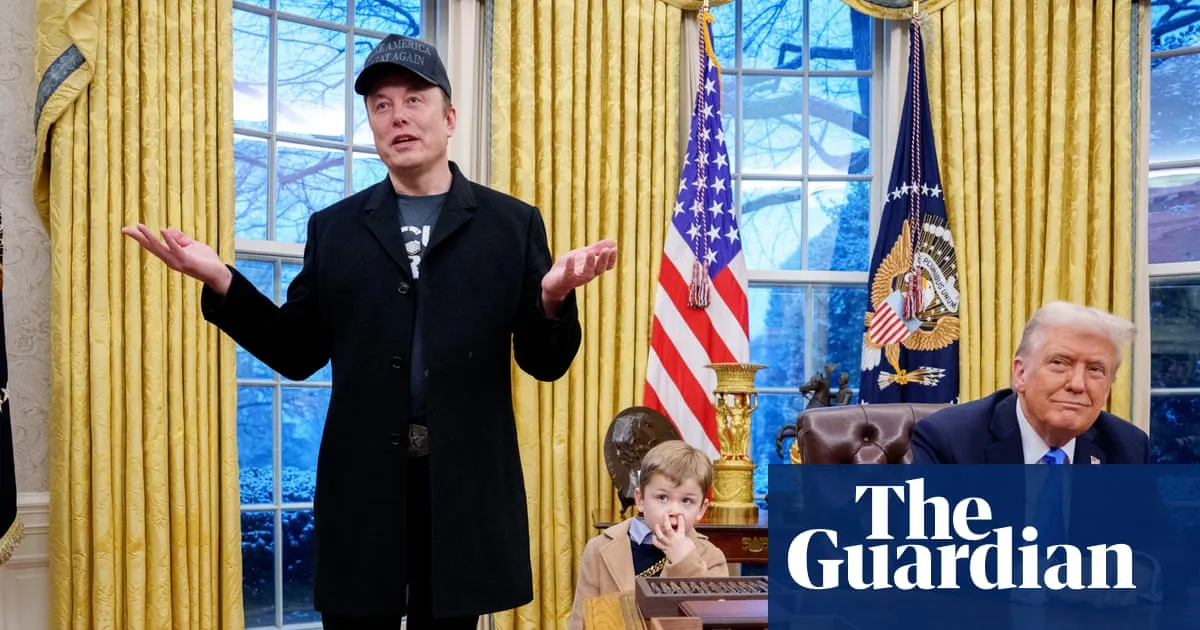
The Department of Government Efficiency (Doge) has reportedly been dissolved, with eight months remaining on its contract. This marks the end of a lengthy initiative aimed at reshaping federal agencies and reducing the workforce by thousands of federal employees. Scott Kupor, the Director of the Office of Personnel Management (OPM), confirmed to Reuters earlier this month that Doge no longer exists as a "centralized entity." This statement aligns with growing suspicions regarding the department's dissolution, which was initially established through an executive order signed by former President Donald Trump on his first day in office.
Tech billionaire Elon Musk and former Republican presidential candidate Vivek Ramaswamy were appointed to lead Doge, with the intention of implementing "large-scale structural reform" by July 24, 2026. In a statement made earlier this year, Musk claimed, "We are actually trying to be as transparent as possible." However, this statement contradicted reports that Doge agents often failed to identify themselves and made significant cuts to agency spending without proper consultation. Furthermore, there was a noticeable lack of public accounting for Doge's activities, raising questions about its transparency.
Concerns about the potential disbandment of Doge began to surface in early summer when Politico reported that staff members were seen packing their belongings at the department's headquarters. Many had been sleeping at the office since February, and the search for new housing followed a public feud between Trump and Musk. Former employees expressed anxiety about the implications of their roles in cutting government programs and jobs, fearing possible criminal repercussions.
By May, Doge had reportedly laid off over 200,000 federal workers, with around 75,000 accepting buyouts. The organization claimed that these layoffs resulted in billions of dollars in savings; however, experts found it impossible to verify such claims due to the lack of public accountability. One former Doge official, now working for a federal agency, stated, "If someone from Doge, or representing themselves from Doge, asked me to do something, I wouldn’t just blindly do it," reflecting a growing skepticism about the department's operations.
Despite the apparent dissolution of Doge, officials from the Trump administration have not publicly addressed the matter. Documents obtained by Reuters indicated that the OPM has since absorbed many of Doge's former responsibilities. Additionally, Trump has been observed speaking about Doge in the past tense, and Musk's departure from Washington in May further fueled speculation about the department's fate.
Many key figures from Doge have transitioned into different roles within the government. For instance, Amy Gleason, who served as acting administrator, became an adviser to Health and Human Services Secretary Robert F. Kennedy Jr. in March. Zachary Terrell, another senior team member, is now the chief technology officer at the Department of Health, while Rachel Riley has been appointed chief of the Office of Naval Research, according to reports from Reuters.
The most notable departure from Doge was Joe Gebbia, co-founder of Airbnb, who has since been tasked by Trump with enhancing government websites. Since leaving Doge, Gebbia has shifted his focus to launching initiatives aimed at recruiting law enforcement officers to patrol Washington, D.C., and promoting the president’s extensive drug pricing program. These developments highlight the ongoing evolution of government roles following the controversial tenure of the Department of Government Efficiency.